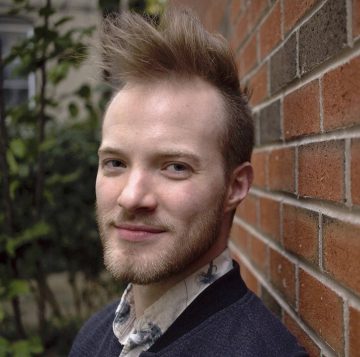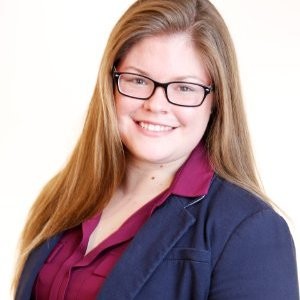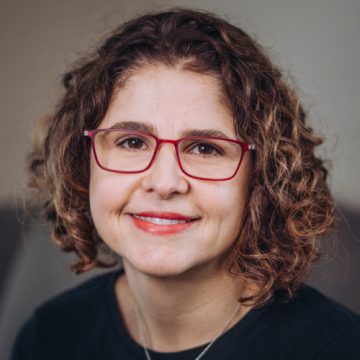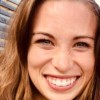
Opportunities for Public Communication of Science
March 6, 2020 @ 4:30 pm - 7:00 pm
- This event has passed.
Opportunities for Public Communication of Science panel discussion
Friday March 6 at 4:30-7:00pm-this session is open to the public and will feature panelists from Cornell and the community.
Held in Plant Sciences 143, includes pizza and veggies
Speakers:
 Tristan Fehr (he/they) is a science communicator, LGBTQIA+ community advocate, and scientist. As a PhD student in neuroscience at the Icahn School of Medicine at Mount Sinai in New York City, Tristan co-created the Effective Science Communication course to help strengthen science communication skills of trainees throughout the biomedical sciences. Regionally, he acts as the Executive Editor for NYC Science Communication, an organization promoting the advancement of early-career scientific communication professionals in and around New York. Tristan also founded and serves as the current Chair of the Mount Sinai chapter of Out in STEM (oSTEM), through which he works to enhance institutional and community support for LGBTQIA+ researchers. As an NSF Graduate Research Fellowship recipient, Tristan studies the long-term effects of early-life anesthesia exposures on the brain. He is expected to graduate from his doctoral program in fall 2020.
Tristan Fehr (he/they) is a science communicator, LGBTQIA+ community advocate, and scientist. As a PhD student in neuroscience at the Icahn School of Medicine at Mount Sinai in New York City, Tristan co-created the Effective Science Communication course to help strengthen science communication skills of trainees throughout the biomedical sciences. Regionally, he acts as the Executive Editor for NYC Science Communication, an organization promoting the advancement of early-career scientific communication professionals in and around New York. Tristan also founded and serves as the current Chair of the Mount Sinai chapter of Out in STEM (oSTEM), through which he works to enhance institutional and community support for LGBTQIA+ researchers. As an NSF Graduate Research Fellowship recipient, Tristan studies the long-term effects of early-life anesthesia exposures on the brain. He is expected to graduate from his doctoral program in fall 2020.
 Becca Harrison received her B.S. in Animal Science from Cornell University in 2014, and is now a Ph.D. candidate in Cornell’s Department of Science & Technology Studies. Her research considers how agricultural biotechnologists are deliberate, ethical actors navigating both a complex regulatory structure and increasing public concern about genetic engineering. Her exposure to biotechnological development at Cornell, involvement with science and technology policy as an intern in Washington, D.C., her engagement with the agricultural biotechnology community through various writing positions and online engagement, her extensive on-farm agricultural experience, and her academic coursework and teaching have given her the standpoint necessary to appreciate not only the future role for this technology, but also the need for re-envisioning how its use is communicated, and its risk regulated.
Becca Harrison received her B.S. in Animal Science from Cornell University in 2014, and is now a Ph.D. candidate in Cornell’s Department of Science & Technology Studies. Her research considers how agricultural biotechnologists are deliberate, ethical actors navigating both a complex regulatory structure and increasing public concern about genetic engineering. Her exposure to biotechnological development at Cornell, involvement with science and technology policy as an intern in Washington, D.C., her engagement with the agricultural biotechnology community through various writing positions and online engagement, her extensive on-farm agricultural experience, and her academic coursework and teaching have given her the standpoint necessary to appreciate not only the future role for this technology, but also the need for re-envisioning how its use is communicated, and its risk regulated.
 Lyza Maron is a plant biology researcher and science writer in Ithaca, NY. Lyza holds a PhD in Plant Biology from Cornell University and an MSc in Molecular Biology and Genetics from the University of Campinas, Brazil. Her research has examined crop abiotic stress resistance and mineral nutrition in plants. She is interested in the relationship between food production, sustainability, and consumer habits in the context of climate change.
Lyza Maron is a plant biology researcher and science writer in Ithaca, NY. Lyza holds a PhD in Plant Biology from Cornell University and an MSc in Molecular Biology and Genetics from the University of Campinas, Brazil. Her research has examined crop abiotic stress resistance and mineral nutrition in plants. She is interested in the relationship between food production, sustainability, and consumer habits in the context of climate change.
 Nyasha Mudukuti, Science Communication and Networking Associate at the Alliance for Science. A Mastercard Foundation scholar from Michigan State University who majored in plant breeding, genetics and biotechnology, Nyasha is also a BSc honors graduate in biotechnology from Chinhoyi University of Technology, Zimbabwe. She served as the 2016 AGCO Africa Ambassador, advocating for agricultural reforms across the African continent. More recently, she was a speaker at the 2019 Oxford Farming Conference. Nyasha also participated in the World Food Prize’s Borlaug Dialogue in both 2014 and 2018. Additionally, she is a member of the Global Farmers Network and a proud Global Youth Ambassador fellow of the U.N initiative ‘A World At School’ and a 2016 Young African Leaders Initiative fellow as an emerging young leader. Her dream is to help her continent see the importance of biotechnology in agriculture and use it to improve the livelihoods of African smallholder farmers.
Nyasha Mudukuti, Science Communication and Networking Associate at the Alliance for Science. A Mastercard Foundation scholar from Michigan State University who majored in plant breeding, genetics and biotechnology, Nyasha is also a BSc honors graduate in biotechnology from Chinhoyi University of Technology, Zimbabwe. She served as the 2016 AGCO Africa Ambassador, advocating for agricultural reforms across the African continent. More recently, she was a speaker at the 2019 Oxford Farming Conference. Nyasha also participated in the World Food Prize’s Borlaug Dialogue in both 2014 and 2018. Additionally, she is a member of the Global Farmers Network and a proud Global Youth Ambassador fellow of the U.N initiative ‘A World At School’ and a 2016 Young African Leaders Initiative fellow as an emerging young leader. Her dream is to help her continent see the importance of biotechnology in agriculture and use it to improve the livelihoods of African smallholder farmers.
Moderator:
 Rachel Sandman is a Cornell Ph.D. candidate in the field of genetics with a passion for scientific communication. She is currently a science writer for the blog “Beauty meets Science” and enjoys helping others understand how science impacts their community.
Rachel Sandman is a Cornell Ph.D. candidate in the field of genetics with a passion for scientific communication. She is currently a science writer for the blog “Beauty meets Science” and enjoys helping others understand how science impacts their community.
Accessibility Requests
We strive to make our events accessible to all community members. Individuals who would like to request accessibility accommodations should contact gradcareers@cornell.edu. We ask that requests be made at least one week in advance to help ensure they can be met.
Supported by Engaged Cornell and Careers Beyond Academia and led by Bruce Lewenstein, Professor of Science Communication.
Communication Workshop (COMM 5660)
The above public panel discussion kicks off the COMM 5660 course.
This weekend workshop, running 9-5 both Sat. March 7 and Sun. March 8, trains researchers in the sciences (including natural sciences, engineering, experimental social sciences, etc.) to communicate effectively with nonscientists such as policy makers, political stakeholders, the media, and the general public. Training activities may include role-play, mini lectures, reading/discussion, hands-on writing blog posts and other outreach materials, real-time practice being interviewed for the media, and discussion with invited speakers. Several guest speakers will be featured throughout the weekend, including Harvard University’s Fanuel Muindi, citizen scientist, social entrepreneur and think tank founder of STEM Advocacy Institute.
Learning Objectives:
After participating in this workshop, students will be able to:
- Discuss science communication opportunities, both within traditional scientific careers and as standalone careers
- Begin identifying characteristics of potential audiences for science communication
- Write drafts of short texts (such as blog posts, tweets, and similar items) for non-scientific audiences
- Begin planning for media interviews
- Discuss social, ethical, and scholarly issues associated with science communication
The Friday panel (described below) is open to the public; Saturday and Sunday all day is for enrollees only. You will get practice. Plenty of practice. Saturday will involve writing for the public through press releases and blogs, and Sunday is devoted to constructing a message and delivering it in a broadcast media interview. Throughout the weekend, you will meet other professionals, learning from their experience.
Credit:
To get credit for the class you must attend all sessions. Enroll via class roster : 14555, or contact Susi Varvayanis (sv27@cornell.edu) if past the add/drop deadline.
Testimonial:
“One of the most engaging Careers Beyond Academia/BEST experiences for me was a science communication workshop that I attended taught by Bruce Lewenstein. This was an excellent crash course on science communication and forced me to think through how the public receives and perceives scientific news and how I could best communicate my own work to the public without over complicating it.”-Felicity Emerson, Biomedical and Biological Sciences
To prepare:
Come with a brief (100-200 word) written summary of your own research. You will use this summary as the basis for class activities. If you are interested in science blogging, set up your own blog site in advance (Google’s Blogger service is pretty simple to use, but you’re welcome to try another service if you prefer; WordPress is also useful if you want a full website). You will need a computer or tablet (probably with a keyboard), as you will be looking at things online and writing during the workshop.
More more information, see last year’s syllabus.


